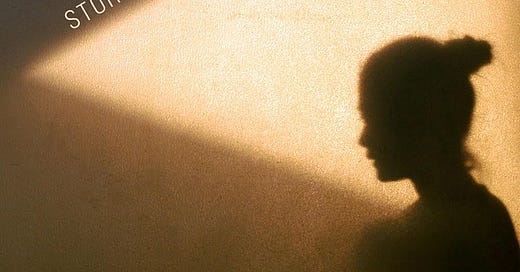Class Lessons: Stories of Vulnerable Youth by Lucy E.M. Black
A Fiction Review by John Oughton
Class Lessons is an unusual collection of stories inspired by Lucy Black’s 29 years as an educator. After working in corporate training, she decided to reset her career and become a classroom teacher in high schools, eventually stepping into a vice principal’s shoes. Empathetic and reflective, Black writes: “Unfortunately, school success is not experienced by all students, especially those for whom the struggles of daily existence overwhelm every other aspect of life. In my experience, female students are frequently among the most vulnerable and yet the most resilient of such constituents.“
After an initial set of true-life tales that give the backstory to Black’s career change, her names-changed-to-protect-the-innocent stories make it clear just how huge those struggles of existence can be. The characters include young women living in squats, battling poverty, judgmental, even alcoholic or abusive parents, incest, rape, fetal alcohol syndrome, and learning difficulties. Some in their early teens are already pregnant, or sex workers or table dancers. Another, from an immigrant Muslim family, is stalked and assaulted by her brother when he feels her behaviour besmirches the family’s honour. One of her characters is bullied for becoming gender fluid, and another as the only Black student in an often racist student population.
Commenting on this, Black notes that the other students “were not discernably monstrous. They were simply teenagers seemingly untouched by the territoriality that had destroyed an innocent girl.” While trying to help these victims, the narrator becomes inextricably involved with others in the community, both helping (foster parents, social workers, police) and troubling – the local biker gang, pimps, or parents who blame teachers for their child’s behavioural problems when a toxic family environment is the true cause. The title, Class Lessons, has a useful double meaning, as Black, from a more privileged background is not used to talking with bikers, or sex workers, or being threatened by a controlling parent. The stories transmit what Black learned from the students who confided in her and (mostly) trusted her, many set in a small, working-class town.
Among the qualities of Black’s writing that keep these stories real are her honesty and humility. She writes of her own fear in certain situations. Of a character named Jade, Black admits: “She lived in a world that I could only glimpse.” Regarding her encounters with another troubled girl, Black reflects: “I had left the corporate world hoping to be helpful and now I saw how limited my own skill set was, along with my privilege and lack of contextual experience.“
“Black’s narratives are often sobering accounts of how, even in a relatively prosperous, liberal and peaceful country like Canada, young people may face enormous challenges in order to assert their own identities and contribute to society.”
The narrator doesn’t give up on her students, no matter how difficult or challenging they are. She knows that students who are racist or homophobic learn these attitudes outside the school: “I came to understand that the biases and values reinforced in some homes were poisoning our efforts within the school.” Later, on the same theme, she adds that the saying “The apple doesn’t fall far from the tree” is often used “when discussing such situations. But I believed it was possible to collect those apples and toss them just a little further out. I had to believe that because I saw it as part of my job. To expose young people to a broader way of thinking – to help them become responsible social citizens.”
These stories are well worth reading. They will give parents more insight into what their children (especially daughters) may face or hear about during their teens. Anyone, like me, who has worked in education will be reminded how educators’ efforts to help their students are often thwarted by systems and forces beyond their control. Black’s narratives are frequently sobering accounts of how, even in a relatively prosperous, liberal and peaceful country like Canada, young people may face enormous challenges in order to assert their own identities and contribute to society.
Another possible use of the book is as a source of case studies for not only teachers and school administrators, but those being trained in professions such as counselling, social work, child and family services, and police work. While there is not always a solution to the problems Black dramatizes, it at least helps to discuss what can and should be done for needy teens, who are traumatized by their world, often by their peers and families, but still trying to survive, and ultimately thrive.
About the Author
Lucy E.M. Black was a corporate trainer before becoming a career educator. She is the author of The Marzipan Fruit Basket, Eleanor Courtown, Stella’s Carpet, and The Brickworks. Her short stories have been published in literary journals and magazines in Britain, Ireland, the USA, and Canada. She lives with her partner in Port Perry, Ontario, the traditional territory of the Mississaugas of Scugog Island, First Nations.
About the Reviewer
John Oughton lives in Toronto and has retired as a Professor of Learning and Teaching at Centennial College in Toronto. He is the author of six poetry collections, most recently The Universe and All That (Ekstasis Editions), the mystery novel Death by Triangulation, and over 400 articles, reviews and interviews. https://joughton.wixsite.com/author
Book Details
Publisher : Demeter Press (Oct. 1 2024)
Language : English
Mass Market Paperback : 200 pages
ISBN-10 : 1772585068
ISBN-13 : 978-1772585063






